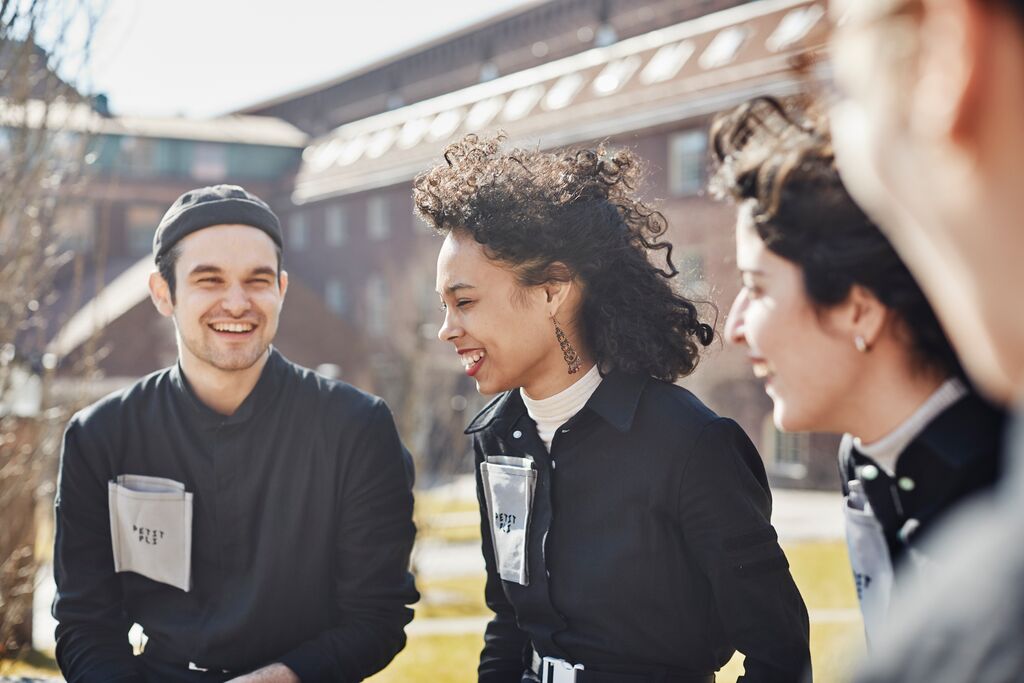KTH Innovation supports innovators creating the future of fashion

In highest secrecy, five early-stage innovations capable of changing the fashion industry to the core have been meeting at KTH this week. The five winners of the Global Change Award, a global innovation challenge with KTH as a main partner, have arrived to Stockholm.
By 2030, the world’s population will have grown to 8,5 billion people, who will all need something to wear. At the same time, our thirst for the latest fashion grows way faster than the population increase, and is estimated to increase by 65 %.
To reach the UN Sustainable Development Goals, we need to modify almost every aspect of society, and the fashion industry is no exception. To protect the planet and living conditions, the fashion industry needs to change to the very core: from a linear model, where clothes are produced, used and then discarded, to a circular model, where every step from production to recycling is connected in an endless cycle.
Started by H&M Foundation , the Global Change Award is the world’s largest challenge for early-stage innovation, and the first of its kind in the fashion industry. KTH has been a partner in the initiative together with Accenture since the start in 2015.

Five innovations deemed to be capable of accelerating the shift to a circular fashion industry get to share a one million euro grant, and take part of a one-year acceleration program with touchdowns in Stockholm, New York and Hong Kong, developed together with KTH Innovation.
The five winners for 2019 have been selected from almost 7,000 ideas from 182 countries. Gustav Notander from KTH Innovation, who coaches the winners during their week in Stockholm, says:
"Following the winners’ development over the course of the year is incredible. The tools they get as part of the accelerator program, together with the networks H&M Foundation, Accenture and KTH give access to, really creates opportunities to quickly develop the ideas."
The winners get to take part of some of the support available to students, researchers and employees at KTH. They develop their innovations based on the KTH INNOVATION READINESS LEVELTM model. The model has been internationally recognized, and universities from around the world have expressed interest in using it in their work.
The model is based on NASA’s Technology Readiness Levels, which was developed in the 1960s, to create order in the chaos that ensued when thousands of people were working together toward a common goal: to put a man on the moon and bring him back home again.
The KTH Innovation team found out about the model during a visit to Silicon Valley in 2010, and business development coaches Gustav Notander and Daniel Carlsson quickly realized that it could be used in the commercialization of new technology. Since then, the model has been expanded to encompass six areas that are all equally important when taking an idea to the market. With help of the model, it’s easy to gauge how far you’ve come in the development of your idea, which area needs focus, and what to do next.
Sustainable development is a prioritized question at KTH, and the efforts have started to give results, as seen by the university’s recent high ranking in the Times Higher Education ranking. KTH ranks as one of the world’s 10 leading universities in scores based on the UN’s global sustainability goals, including a position as number three in innovation. When asked why KTH chose to engage in the Global Change Award, Lisa Ericsson, Head of KTH Innovation said:
"As a world-class, technological university KTH is an engine and a knowledge hub for sustainable development, and at KTH Innovation we work with ideas that can contribute to a brighter future on a daily basis. When we were asked if we wanted to become a partner in the Global Change Award and help develop the accelerator program, we felt that our expertise could really contribute. We look forward to following these amazing innovations in the future!"

